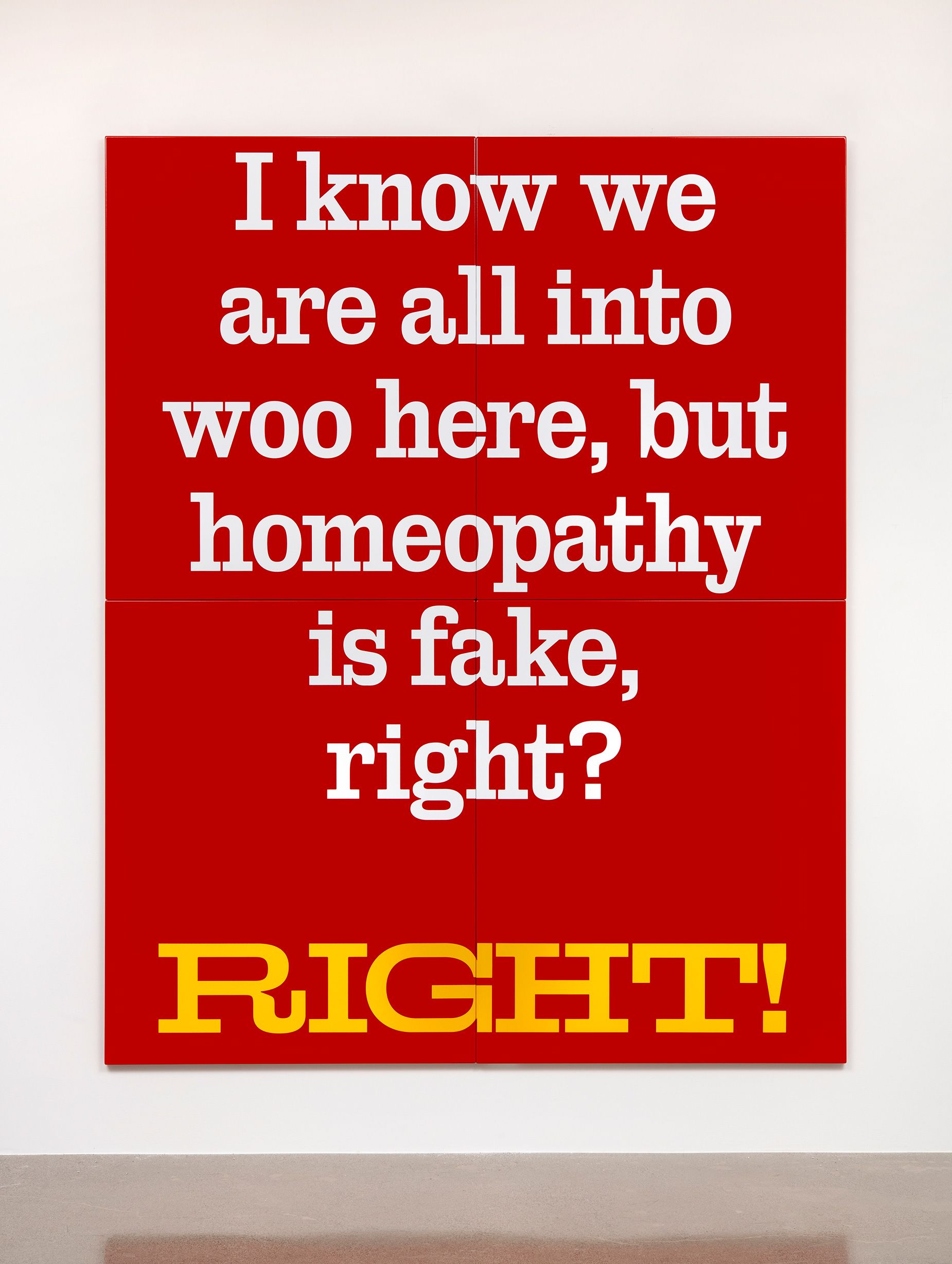With so many questionable, quirky and quack medicines, supplements and "cures" available online and elsewhere, I think it important for folks to be cautious. I support what this artist is saying ...

Gassho, J
stlah
‘It’s not true, stop lying:’ Why this artist is taking on the wellness industry
For the past two years, the 33-year-old Croatian artist has been deep diving into what she called “this whole healing, self-development, self-optimization space”. What has emerged is “it’s not true!!! stop lying!” — a solo show at Sprüth Magers’ Los Angeles gallery, and a riposte to the wellness industry. ...
... In the city often considered the spiritual home of self-optimization, “it’s not true!!! stop lying!” examines Turato’s own skeptical but also susceptible response to the pervasive notion that we can become healthier, happier and truer versions of ourselves. “Sleep / it’s good for you!” glares one wall-mounted enamel panel. Another posits: “I know we are all into woo here, but homeopathy is fake, right? Right!” Meanwhile, a trio of wall paintings, in stark black and white, shout out: “authenticity”, “haha”, “speaking my truth!!!” ...
... She reels off a list: Tomatis sound therapy; EMDR (Eye movement desensitization and reprocessing), to process traumatic memories, and Internal Family Systems, “where you kind of talk to parts of yourself”; the Feldenkrais Method of mindful movement; Holotropic breathwork. “You basically hyperventilate for three hours with eyes closed to this crazy music,” she says of the latter, which she still does once a month. “At some point I started noticing that it wasn’t about work anymore; it was about me.” In this way, Turato embodies both consumer and critic, and explores her own conflicting, even contradictory standpoints. ...
For the past two years, the 33-year-old Croatian artist has been deep diving into what she called “this whole healing, self-development, self-optimization space”. What has emerged is “it’s not true!!! stop lying!” — a solo show at Sprüth Magers’ Los Angeles gallery, and a riposte to the wellness industry. ...
... In the city often considered the spiritual home of self-optimization, “it’s not true!!! stop lying!” examines Turato’s own skeptical but also susceptible response to the pervasive notion that we can become healthier, happier and truer versions of ourselves. “Sleep / it’s good for you!” glares one wall-mounted enamel panel. Another posits: “I know we are all into woo here, but homeopathy is fake, right? Right!” Meanwhile, a trio of wall paintings, in stark black and white, shout out: “authenticity”, “haha”, “speaking my truth!!!” ...
... She reels off a list: Tomatis sound therapy; EMDR (Eye movement desensitization and reprocessing), to process traumatic memories, and Internal Family Systems, “where you kind of talk to parts of yourself”; the Feldenkrais Method of mindful movement; Holotropic breathwork. “You basically hyperventilate for three hours with eyes closed to this crazy music,” she says of the latter, which she still does once a month. “At some point I started noticing that it wasn’t about work anymore; it was about me.” In this way, Turato embodies both consumer and critic, and explores her own conflicting, even contradictory standpoints. ...

Gassho, J
stlah


Comment